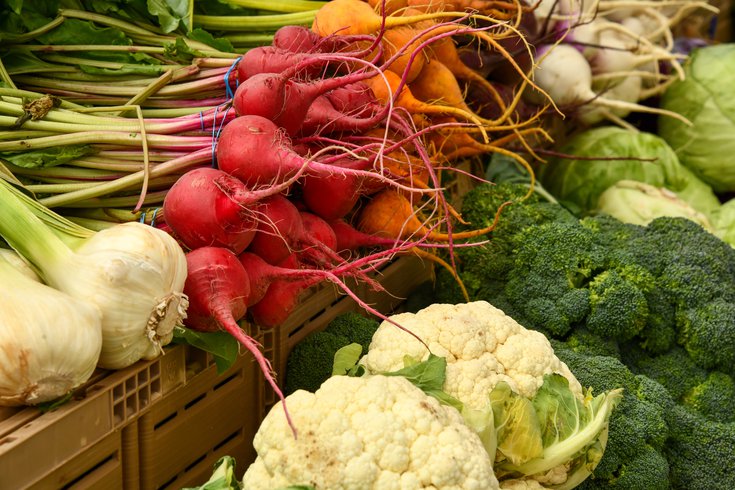
August 29, 2023
 Shelley Pauls/Unsplash
Shelley Pauls/Unsplash
'Prescriptions' for free fruits and vegetables have been linked to improved heart health and decreased food insecurity, according to new research.
People at risk for cardiovascular disease experienced reductions in blood pressure, blood sugar and body mass index when they were given "prescriptions" for fruits and vegetables, a new study found.
Along with improving heart health, these "produce prescriptions" also were linked to decreased food insecurity, according to research published Tuesday by the American Heart Association.
Produce prescription programs allow doctors to provide vouchers for free or discounted fruits and vegetables at grocery stores or farmers' markets, in addition to medications. These programs have expanded in the last decade, and particularly since the COVID-19 pandemic.
The study found that these programs helped adults increase their daily produce intakes by nearly 1 cup; children upped theirs by nearly 1/4 cup per day. Adults were 62% more likely to report being in better overall health after finishing a produce prescription program; children were more than twice as likely.
Blood pressure decreased among adults who had high blood pressure, blood sugar levels improved among adults with diabetes, and BMI significantly improved among adults with obesity. And participants were one-third less likely to report food insecurity.
Previous research had examined the effects of individual produce prescription programs, but this study is believed to be the largest, having pooled data from nine programs in the United States.
"We know that food insecurity impacts health through several important pathways, including overall dietary quality, but also through stress and anxiety, mental health and tradeoffs between paying for food and other basic needs such as housing costs, utilities and medications," said Kurt Hager, an instructor at the University of Massachusetts' Chan Medical School and the lead study author. "These results indicate produce prescriptions may lay an important foundation for improved health and well-being."
The study included 2,064 adults and 1,817 children enrolled in produce prescription programs operated by nonprofit Wholesome Wave across 12 states between 2014 and 2020. All participants had or were at risk for heart disease or type 2 diabetes. They also either experienced food insecurity — the lack of stable access to healthy foods and beverages — or were enrolled in a clinic serving a predominately low-income neighborhood.
For 4 to 10 months, each participants received a median of $63 monthly to purchase produce. They also attended nutrition classes. They received health screenings at the start and conclusion of their programs, and answered questionnaires about nutrition and food insecurity.
The study's findings were limited by the lack of a control group. More research, including randomized-controlled trials, are needed to determine whether eating more fruit and vegetables actually caused the improvements. It's possible that the improvements were the result of the vouchers providing better food security, researchers told the Washington Post.
The American Heart Association's Food Is Medicine initiative, created last year to provide medical prescriptions for healthy food, will support continued trials on the topic.
Federal dietary guidelines recommend adults eat at least 1 1/2 to 2 cups per day of fruit and 2 to 3 cups per day of vegetables. An analysis by Harvard Medical School found that the biggest health benefits come from eating leafy green vegetables — like kale or spinach — and fruits and vegetables that are rich in vitamin C and beta carotene — like citrus, berries and carrots.
Only 1 in 10 adults reach the recommended amount of fruits and vegetables, and people living in poverty consume much less than the recommended amount, research shows. Poor nutrition contributed to nearly 8 million deaths in 2019 alone, according to the American Heart Association. It has been found to play a role in serious long-term illnesses, like heart disease and diabetes.
"This analysis of produce prescription programs illustrates the potential of subsidized produce prescriptions to increase consumption of nutritious fruits and vegetables, reduce food insecurity and, hopefully, improve subjective and objective health measures," said Mitchell Elkind, chief clinical science officer of the American Heart Association.
Follow Franki & PhillyVoice on Twitter: @wordsbyfranki
| @thePhillyVoice
Like us on Facebook: PhillyVoice
Have a news tip? Let us know.